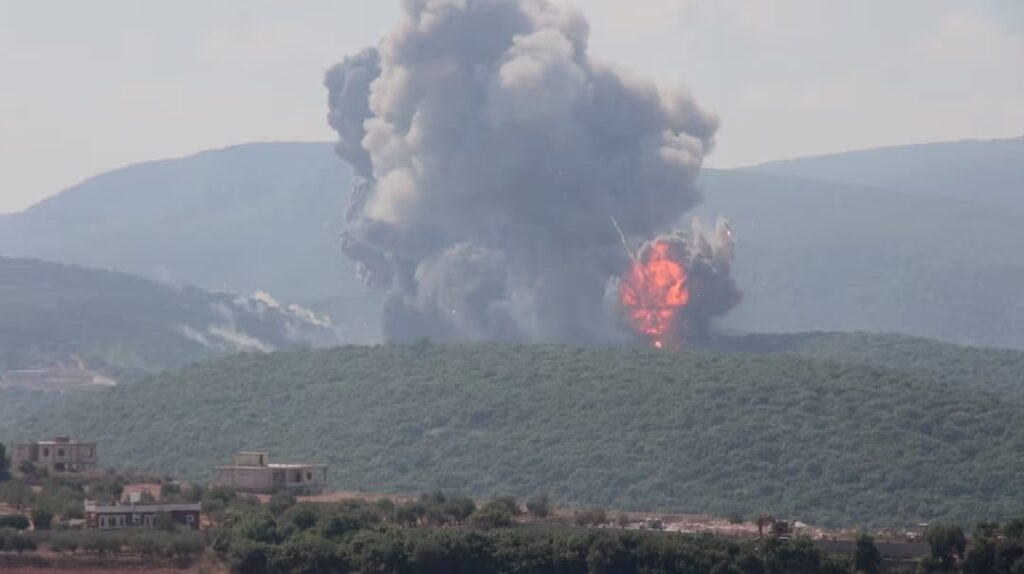A security source in Lebanon reported that at least 40 Israeli airstrikes targeted various towns in the southern part of the country, marking one of the heaviest bombardments since hostilities began in October. Hezbollah confirmed that two of its fighters were killed in Al-Tiri, while Amal, a Hezbollah-aligned Shia group, stated that one of its fighters died in a strike on Khiam.
Hezbollah launched hundreds of rockets and drones at Israel early on Sunday, as Israel’s military said it struck Lebanon with around 100 jets to thwart a larger attack, in one of the biggest clashes in more than 10 months of border warfare.
Israel’s military announced that a naval soldier was killed, with two others wounded during the strikes. Lebanon’s caretaker Prime Minister, Najib Mikati, convened a national emergency committee with cabinet ministers to address the escalating situation.
Flights to and from Tel Aviv’s Ben Gurion Airport were temporarily suspended for approximately 90 minutes, with some flights to and from Beirut also halted, leaving passengers stranded.
In northern Israel, warning sirens blared as explosions were heard in several areas. Israel’s Iron Dome defence system intercepted rockets launched from southern Lebanon. Local resident Yuval Peleg, 73, from Haifa, advocated for a strong Israeli response, suggesting that Israel should deliver a pre-emptive strike if Hezbollah continued its attacks.
In southern Lebanon, a resident of Zibqeen described waking up to the sounds of planes and rockets before dawn, likening the scene to an apocalyptic event.
The White House confirmed that US President Joe Biden was closely monitoring the developments, reiterating the US’s support for Israel’s right to self-defence, while also working towards regional stability. United Nations Secretary-General António Guterres expressed deep concern over the escalation between Israel and Hezbollah, urging both sides to cease hostilities immediately. Egypt and Jordan also issued warnings against further escalation.
While the US was not directly involved in Israel’s strikes, it did provide intelligence on Hezbollah’s planned attacks, according to a US official.
Hezbollah has been firing missiles at Israel since the October 7 Hamas attack, with both sides engaged in frequent exchanges of fire. However, tensions intensified after an Israeli strike in the Golan Heights, which Hezbollah denied responsibility for, and the subsequent killing of senior Hezbollah commander Shukr in an airstrike. Shukr’s death was soon followed by the assassination of Hamas political leader Ismail Haniyeh in Tehran, prompting threats of retaliation from Iran.
Meanwhile, Hamas rejected new Israeli terms in Gaza ceasefire talks, casting further doubt on the potential for a breakthrough in US-mediated efforts to end the ongoing 10-month conflict.









